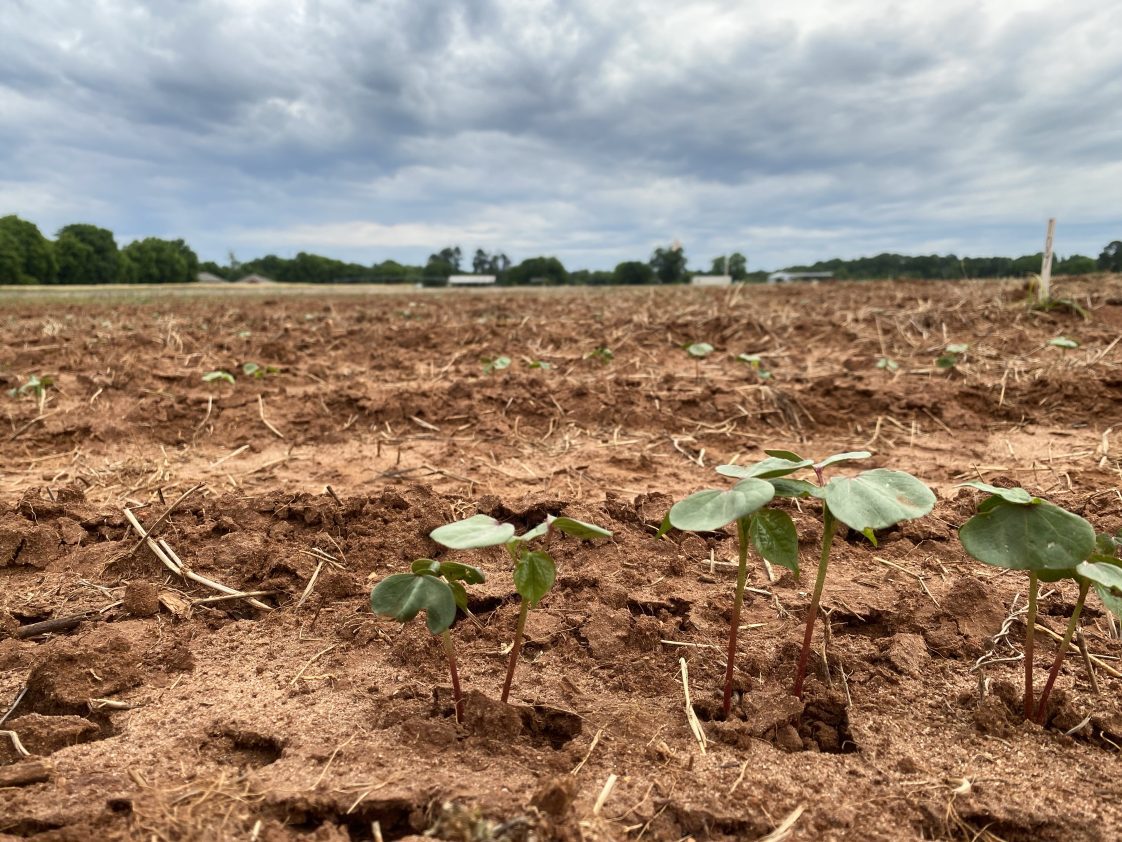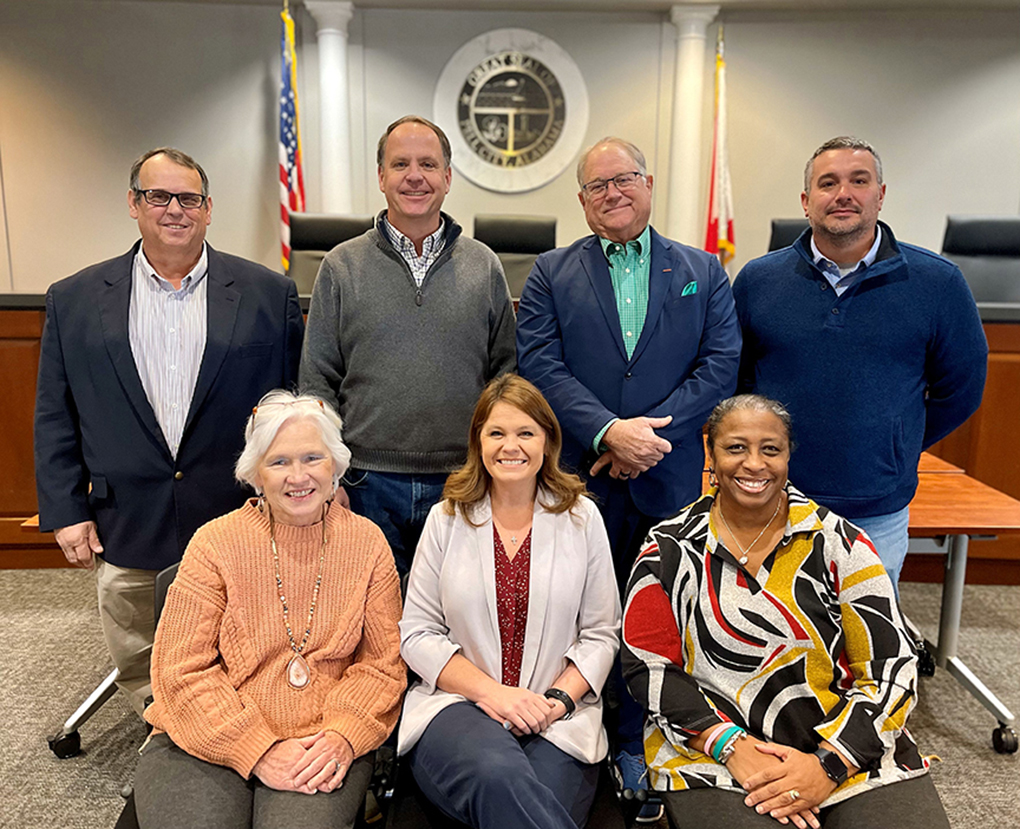Specialty crop block grant program projects announced
Published 4:55 pm Monday, September 16, 2024
USDA has awarded the Alabama Department of Agriculture and Industries $495,000 to fund projects through the Specialty Crop Block Grant Program. The program will fund 12 projects to enhance competitiveness of specialty crop growers by using marketing, education and research for Alabama’s specialty crop industry.
“Since I became Commissioner in 2019, the specialty crop industry including fruits, vegetables, tree nuts and nursery crops has grown tremendously,” said Alabama Commissioner of Agriculture and Industries Rick Pate said in a press release. “ADAI is eager to help farmers accomplish their goal of increased production and market expansion of specialty crops.”
The funding to Alabama is part of a total of $72.9 million in non-competitive FY 2024 funding awarded to 54 states, territories and the District of Columbia through the program.
“We are happy to once again be partnered with Alabama on the Specialty Crop Block Grant Program,” USDA Under Secretary for Marketing and Regulatory Programs Jenny Lester Moffitt said in the release. “The innovative projects funded through this program will strengthen U.S. specialty crop production and markets and ensure Americans have sustained access to fresh, locally grown fruits, vegetables and other specialty crops and support the region’s specialty crop growers to help ensure their long-term success.”
The 12 projects funded in Alabama include:
— Enhancing Peach Orchard Health: Exploring a Farmer-Friendly Solution for Bacterial Spot Control. Auburn University will address the use of phage technology as an alternative to copper containing products, which can cause high levels of damage in the management of bacterial spot disease in peaches. Project Budget — $36,975.
— Delaying Tomato Leaf Stress and Senescence Using Cytokinin. Auburn University will investigate the ability of different cytokinin isoforms to delay oxidative stress in tomato leaves by measuring photosynthesis, oxidative damage and stress responsive genes. Project Budget — $40,000.
— Supporting Alabama Growers Adapting Current Production Systems for Strawberry Cultivation. Auburn University, Alabama Cooperative Extension System and ADAI are partnering to assist strawberry growers in adapting their current production systems used for other crops to also grow strawberries. Through grower meetings and field days, farmers will learn the effects of alternative production systems, which can extend their growing season. Project Budget — $40,000.
— Growing High-Value Kiwifruit in Alabama for Local Markets and School Systems. Auburn University and Alabama Cooperative Extension System will determine and disseminate optimal production practices for high value gold-fleshed kiwifruit in south and central Alabama to increase their availability in local markets and schools. Project Budget — $40,000.
— Affordable Sensors to Monitor Vegetable Crop Performance. The Department of Horticulture at Auburn University will validate the use of cost-effective portable sensors in monitoring vegetable growth and production in Alabama. This project intends to confirm the effectiveness of the sensors at detecting nutrients deficiencies and water stress in the early stages of vegetable crop growth, which optimizes final yield of specialty crops. Project Budget — $40,000.
— Introducing Late Blooming and Early Ripening Blueberries to Alabama. Auburn University will partner with ADAI to identify frost-tolerant blueberry cultivars with early ripening and excellent quality to secure a high profit for blueberry growers. Project Budget — $40,000.
— Preparing Apiary Inspectors and Beekeepers for the Tropilaelaps Mite, a Parasite of Honeybees. Auburn University, in collaboration with the Apiary Inspectors of America, will enhance readiness of U.S. apiary inspectors and Alabama beekeepers to identify and monitor the parasitic mite Tropilaelaps mercedesae. This mite is an emerging threat to honeybees worldwide. Workshops and demonstration events will communicate efficient monitoring techniques, teach invasive pest species emergency management and develop a monitoring and response plan for Tropilaelaps. Project Budget — $21,650.
— Growing Together: Cultivating Excellence at the Alabama Fruit & Vegetable Growers Conference & Tradeshow. The Alabama Fruit and Vegetable Growers Association (AFVGA) works to improve the specialty crop industry through research, advocacy, education and promotion. This project will enhance the education and quality of the AFVGA annual conferences and tradeshow. Project Budget — $25,000.
— Operation Grow for Beginning Veteran Farmers: From Information to Infrastructure. Auburn University, through the Operation Grow program, will provide sustainable support to veterans starting farming careers in Alabama by hosting educational events, facilitating connections and developing support groups and resources for the farmers. Project Budget — $36,784.
— Educating Students on Specialty Crops in Etowah County. The Windy Van Hooten Teaching Garden will establish outdoor raised-bed garden classrooms at multiple elementary schools in the Gadsden City School System in order to provide weekly garden education to kindergarten — 5th grade students. Project Budget — $25,000.
— Queen Bee Rearing Practices for Reducing Annual Colony Losses. Enterprise State Community College will develop a research program to determine the best queen rearing strategy that will benefit small-scale beekeepers by minimizing annual colony losses. Project Budget — $40,000.
— “Influencing” Consumers to Love Specialty Crops. Sweet Grown Alabama will increase consumer demand and consumption of specialty crops by partnering with social media influencers to share posts promoting the health, economic and environmental benefits of specialty crops. Project Budget — $73,500.
Contact Johnny Blackmon at 334-240-7257 or by email at johnny.blackmon@agi.alabama.gov for more information or to view a summary of all the USDA projects funded visit the 2024 SCBGP awarded grants.




